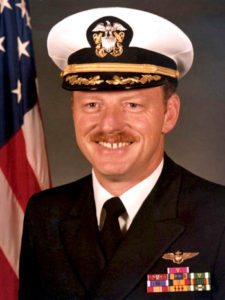One of my first columns for The Democrat in 2007. Alberto’s is still there but it is now run by his son. Alberto has retired. And i bought a $24 electric razor and cut my own hair. There is not enough to spend money on cutting what’s left. So no i miss those barbershops.
SAN DIEGO, CA – When I started writing for The Democrat, I planned to write from ideas saved over the years with a focus on connecting and comparing my Southwest corner to Middle Tennessee.
Then events seem to keep popping up, demanding I write about them. This week, nothing has interrupted my original intentions.
Barber shops are an interesting study of human nature. I am not referring to the franchise stores but the locally owned shops which have been existence since the barber gave up doing dental work out here when the West was young and dentists were in short supply.
For about a dozen years after I moved to this neck of the woods south of San Diego, I got my hair cut at Alberto’s, located in a strip mall across from Southwest College on a mesa, about four miles from the Mexican border as the crow flies.
In many ways, Alberto’s reminds me of the Modern Barber Shop where I received my first haircut just off the square on West Main Street in Lebanon. Growing up, my haircuts were mostly administered by “Pop” at the Modern Barber Shop and later his own place in the Dick’s Food Mart mall.
As I moved into my teenage years, my father and I went to Edwards Barber Shop, located across from the end of University Avenue on South Maple. It was a one-chair shop.
Alberto’s looks very similar to both and even smells the same, a pleasant, somewhat musty aroma. There is a clock running backwards so it will read correctly if you are looking at it through the mirrors back of the chairs. It would have fit in the Modern Barber Shop, Pop’s, or Edward’s.
I first started going to Alberto’s in the mid-1980’s after spotting John Sweatt in a chair. John was commissioned as a Navy officer about three or four years before me. He had been a strong supporter for me on the Castle Heights football team when he was a senior and I was a sophomore. Later, he gave me some hope I might actually complete Navy Officer Candidate School when he visited me in my barracks, resplendent and fearful (to my senior officer candidate tormentors) in his lieutenant junior grade (LTJG) dress blues.
I decided Alberto’s would be good for me as well.
Alberto is a small man with salt and pepper hair and a thin, neatly trimmed mustache. Although his five children are spread from Alaska to San Diego, he still lives in Tijuana and remains a Mexican citizen. His English and my Southern don’t always mix well, but we communicate adequately. He always cuts my hair the way I ask and trims my mustache at no charge.
Alberto reminds me of Pop, although I probably would have been banned from the city limits had I tried to grow a mustache in Lebanon in the 1950’s and 1960’s. The strongest tie is not their barber skills. Alberto’s ethics growing up in a middle class Mexican neighborhood are very much akin to Pop’s. Giving a great service for a reasonable price; they were proud of their work, enjoyed their customers; and in turn, their customers enjoyed them.
Bob is the second in command at Alberto’s. He knows everyone by name. Curiously, Bob always looked like he needs a haircut with a long, untamed mane.
Still he gave me one of my favorite barber shop stories:
A couple of years ago, a recently retired man came into the shop while I was waiting.
Bob stated, rather than asked, “Been retired about six months, haven’t you, George?”
George affirmed and Bob followed, “How’s it going at home with you and the little lady?”
George replied “It’s going great.”
“You and your missus don’t get in each other’s way?” Bob prodded.
George, pleased with himself, turned eloquent, “Nah, she’s very precise and keeps a weekly calendar on the refrigerator.
“So on Sunday, I check her calendar. When she is scheduled to be out, I stay at home and work on my projects.
“Then when she is scheduled to be at home, I go play golf.
“It’s working just fine.”
When this occurred, I thought, “At the core, there is not much difference between barber shops in the Southwest corner and in Middle Tennessee.”
And there is an unlimited supply of barbershop stories in both places.
